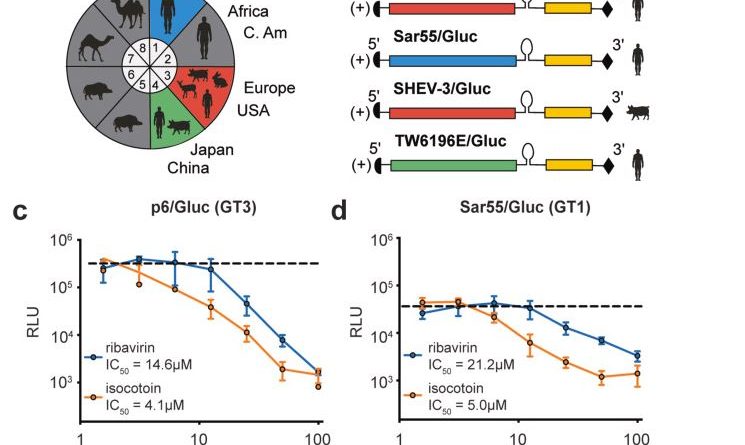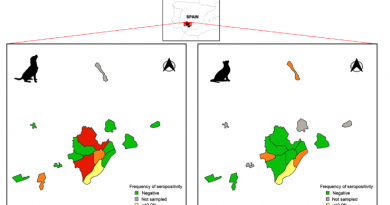Isocotoin suppresses hepatitis E virus replication through inhibition of heat shock protein 90
Abstract
Hepatitis E virus (HEV) causes 14 million infections and 60,000 deaths per year globally, with immunocompromised persons and pregnant women experiencing severe symptoms. Although ribavirin can be used to treat chronic hepatitis E, toxicity in pregnant patients and the emergence of resistant strains are major concerns. Therefore there is an imminent need for effective HEV antiviral agents. The aims of this study were to develop a drug screening platform and to discover novel approaches to targeting steps within the viral life cycle. We developed a screening platform for molecules inhibiting HEV replication and selected a candidate, isocotoin. Isocotoin inhibits HEV replication through interference with heat shock protein 90 (HSP90), a host factor not previously known to be involved in HEV replication. Additional work is required to understand the compound’s translational potential, however this suggests that HSP90-modulating molecules, which are in clinical development as anti-cancer agents, may be promising therapies against HEV.




